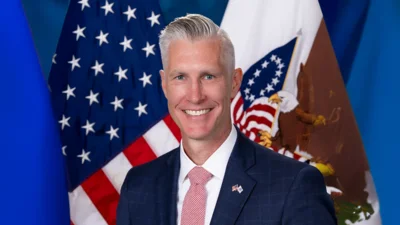Andrew Bailey, Missouri Attorney General | Attorney General Andrew Bailey
Andrew Bailey, Missouri Attorney General | Attorney General Andrew Bailey
On June 18, 2025, Missouri Attorney General Andrew Bailey announced a significant legal victory for the state and others seeking to protect children from gender transition procedures. The United States Supreme Court upheld Tennessee's law banning such procedures for minors in the case of United States v. Skrmetti, affirming states' rights to determine appropriate medical treatments for children.
Attorney General Bailey stated, "My office has been on the front lines of the fight to stop the mutilation of children in the name of radical gender ideology." He emphasized that Missouri was a pioneer in this area and expressed satisfaction with the Supreme Court's decision: "The Supreme Court’s decision affirms what we’ve said all along: states have both the right and the duty to protect children from these irreversible and experimental procedures."
Missouri's involvement began with an investigation launched by Bailey in 2023 into the Washington University Pediatric Transgender Center in St. Louis after allegations emerged about its practices. A whistleblower claimed that the center used experimental drugs on minors without proper assessments and pressured parents into consenting to life-altering treatments. The whistleblower also alleged that these actions led some children to attempt suicide and provided evidence that state funds were misused.
Following these revelations, Missouri became the first state to pass a law banning child sex-change procedures, successfully defending it at trial. The controversy resulted in the closure of all gender transition services for minors at the clinic in September 2023.
Missouri further solidified its stance by leading a 19-state amicus brief in support of Tennessee's position before the Supreme Court. The brief argued that "[t]he Constitution does not strip States of their authority to protect children from experimental medical procedures." By allowing Tennessee's law to stand, the Court endorsed this view.
Bailey concluded by highlighting broader implications: "This is a victory not just for Missouri, but for every state fighting to shield children from irreversible harm disguised as medical care." He pledged ongoing efforts to hold accountable those who harm minors under his jurisdiction.
Missouri remains committed to safeguarding children's welfare and opposing what it sees as politicized medical practices.






 Alerts Sign-up
Alerts Sign-up